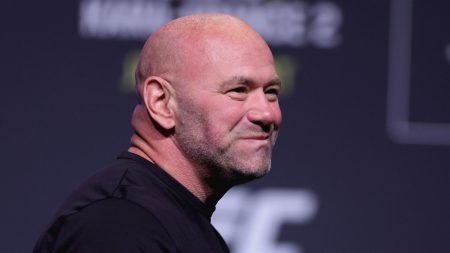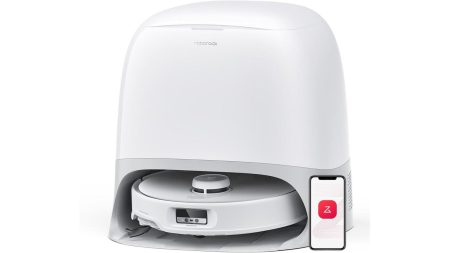The fundraising process is tough. It marks a special and incredibly time-consuming period for a company. Founders must get creative to secure funds from top investors. However, have you ever considered turning your customers into potential investors?
Tiny Health, the first at-home baby gut health testing company, didn’t just consider it, they’ve successfully raised 25% of their total funding round from their customers. This investment commitment, closed within three weeks, was among the quickest to close in their Series A, demonstrating the passion, conviction, and belief their customers have in the company, according to Cheryl Sew Hoy, Founder and CEO of Tiny Health.
In March 2024, Tiny Health announced an $8.5M Series A funding round, led by Spero Ventures, along with partners Overwater Ventures, Next Coast Ventures, Peterson Ventures, and Taylor Sittler, co-founder and former Chief Science Officer at Color Genomics. The round also saw investment from long-time Tiny Health customers and angels at Parenthood Ventures. Existing investors TheVentureCity, Conscience VC, and North South Ventures participated as well, reinforcing their commitment and bringing Tiny Health’s total funding to $13 million.
I spoke with Cheryl Sew Hoy, Founder and CEO of Tiny Health, their customers, and investors to dive deeper into this unique experience.
“We figured that by offering some of our most engaged customers an opportunity to invest, we would further energize them into vocal advocates for our product and mission,” Cheryl says. “I mentioned the raise personally to a subset of our customers, and had planned to potentially invite a few others, but we were already oversubscribed before that could happen.”
In the early stages of fundraising, Tiny Health experienced an unexpected turn when Kristina Simmons from Overwater Ventures, initially a customer, decided to invest after being impressed by Tiny Health’s baby gut health test.
Kristina Simmons, Founder and Managing Partner at Overwater Ventures, explains, “The best investors are those who genuinely care about the product and personally use it.”
Charlotte Michailidis, Founder & CEO of Parenthood Ventures, an early angel investor and business advisor to Tiny Health, proposed the concept of a special purpose vehicle (SPV). As a Tiny Health customer personally affected by her child’s severe food allergies and eosinophilic esophagitis, her suggestion to include a syndicate of parent angels resonated deeply with Cheryl, perfectly aligning with her efforts to support families with similar challenges. Despite initial reservations about the logistical complexities of involving angel investors, the concept proved to be an excellent opportunity to engage customers who had significantly contributed to Tiny Health’s growth, thereby expanding the investor base to those deeply connected to its mission.
Cheryl Sew Hoy shares, “Having Parenthood Ventures lead the SPV helped streamline things, in creating a single channel for angel questions, responses, and so forth. I learned the hard way in prior rounds that meeting individual angels can rapidly become unmanageable alongside conversations with VCs and running a startup! That said, given that Tiny Health’s customers were already so familiar with the value proposition, product, and outcomes it had brought to their families, the questions were mostly around how to wire the funds!”
Charlotte Michailidis adds, “As users of a product which focuses on a particular life-stage, we are advantaged relative to the average investor, who typically only learns about a company in the context of a deal, and might not have firsthand (or recent) experience of early parenthood to help guide their evaluation of the product. We have already lived the Tiny Health customer journey, have been impressed by the insights provided, and watched Cheryl and the company grow.”
However, not only professional customers-investors participated in the round. For Yeelin Tan, it was her first experience as an accredited investor.
“Tiny Health is the first company we have invested in this asset class. Our great experience with their team and our belief in the emerging field of microbiome health encouraged us to step out of our usual comfort zone to support this company.”
Apparently, it’s a very pleasant feeling to participate in the success of a company whose product you use regularly. Yeelin adds, “We were quite excited when we learned about the opportunity to invest in Tiny Health.”
Kristina Simmons highlights the importance of being a fan of the products you invest in, noting, “It allows me to provide better feedback and ideas for the company as a user myself.”
Spero Ventures, led by General Partner Sara Eshelman, emphasizes that having customers as investors is a strong indicator of customer love. Tiny Health is on a mission to empower families to take a proactive approach to gut health, with the trust and support of its early users laying the foundation for this vision. Sara notes, “As an early-stage investor, I’m constantly looking for signs of “customer love.” Category-defining products aren’t just ones that customers buy and use regularly, they’re products that customers evangelize to their friends, neighbors, and even strangers online.”
Cheryl believes that leveraging customer support as investors is a viable strategy for many companies, stating, “We’ve seen other companies launch crowdfunding campaigns (eg using WeFunder, etc.) to their customer base, especially in earlier rounds. It’s really up to the company if they want their customers to be investors and what vehicle they choose to do this. Crowdfunding can work great, especially where capital is proving hard to come by. In a traditional VC-led fundraise like this one, the deal information can only be shared privately, with individuals with whom we already had a deep relationship – as much as we would have loved to loop in all our fans! But for us, at Series A and with the round already shaping up to exceed our target, it was not about capital, but about symbolism – our leading customers are key contributors to our story as a company, and it was a way to cement that relationship.”
Sara Eshelman explains that Tiny Health’s case is exceptional.
“I have seen customers provide critical support for businesses in their earliest days. What’s so special about the participation of Tiny Health’s customers is that they’re coming in as a group, collectively agreeing that the company’s vision to support families throughout their lives is badly needed and has the potential to truly define a new category for preventive health.”
Chronic conditions in children are only increasing, the CDC reports that 40% of kids have one. A staggering 90% of infants are deficient in Bifidobacterium Infantis, which poses a significant problem. Early gut health can affect much more serious issues later in life. Understanding how changes in food, probiotics, and other lifestyle behaviors could affect gut health and impact overall conditions like eczema is key to the healthy lifestyle of your family.
So far, Tiny Health has helped over ~25K families, and they’ve grown by 25% month-over-month since their launch in 2022. Since then, they have expanded their suite of tests to include adults, children (ages 3-17), and vaginal health, addressing the microbiome at all stages of life.
Cheryl explains, “Our product is developed by a team of microbiologists, pediatric physicians, and scientists. We use deep shotgun metagenomics sequencing to provide comprehensive microbiome analyses combined with actionable recommendations to restore imbalances and optimize overall health. We have the largest database of longitudinal family microbiome samples in the world, helping to advance gut health research and improve lifelong health outcomes for future generations.”
Tiny Health recognizes the value of advancing microbiome research and education. Currently, they are conducting several IRB-approved clinical studies to demonstrate and publish improved health outcomes from their educational microbiome tests for the maternal-infant population.
They are planning to continue expanding their B2B platform and partnership ecosystem through co-branded wholesale gut and vaginal testing kits and practitioner access. This includes supplement and nutrition companies, infant formula companies, and academic partners who are trailblazing the gut testing category through evidence-based research. Additionally, Tiny Health is working with various industry and academic partners to launch studies related to infertility, nutrition for NICU babies, metabolic health, supplements efficacy, and childhood allergies.
They are also providing much-needed transparency in the supplement industry through their advanced probiotic strain-tracking capabilities. In the next phases of their strain tracking pipeline, they will offer strain-level pathogen detection as well as strain sharing between family members, including pets, to deepen understanding of the microbiome. This is all part of Tiny Health’s ongoing commitment to enhancing their technology to encourage further innovation and progress within the broader microbiome health industry.
Tiny Health’s journey from a pioneering startup to a beacon of innovation in the gut health testing market underscores a groundbreaking approach to fundraising -turning satisfied customers into committed investors. This model has propelled Tiny Health through a successful Series A funding round, spearheaded by leading firms and backed by the very users who have firsthand experience with the product’s benefits. Next time you are raising a round, think about your users first, the power of community as a fundraising instrument is understated. This approach not only fuels financial backing but also fosters passionate advocacy for the brand, setting a new paradigm for startups aiming to navigate the challenging waters of early-stage funding while building a loyal user base that is genuinely invested in their success.
Read the full article here





